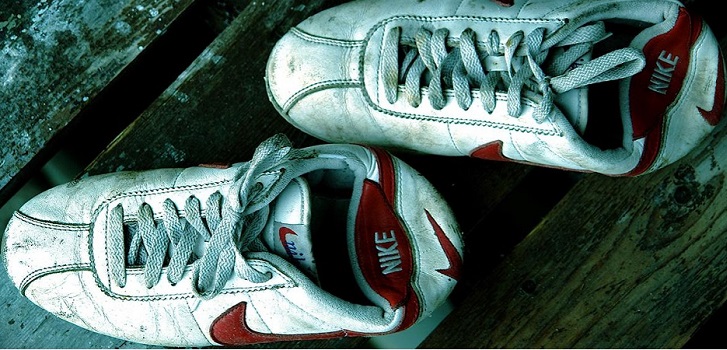A goddess, a giant and a secretary of state: how Nike beat Nike in Spain
The legal battle lasted twenty years and ended with the victory of the American company, which did not have to pay anything to its partners in the Spanish market.

A historic family of the Catalan bourgeoisie, the largest law firms in Spain, a Greek goddess and even a secretary of state. The components of this story may as well sound like the latest Netflix super success, but they are actually the protagonists of a war of almost two decades in which Nike, the largest sports fashion group in the world, earned the right to use its name in the Spanish territory.
Spain, 1979. Democracy just arrived in the country. Spain was still relatively shield from the world. The kings of the sport were brands like Paredes and Nike was a young company that had just begun its global conquest.
To address the Spanish market, the company allied with Comercial de Exclusivas Deportivas (Cidesport), controlled by the Bertrand family, a historic family of the Catalan bourgeoisie linked to the textile sector since the 19th century.
Nike used the ‘swoosh’ in Spain, but could not use the name
The surprise came at the Patent and Trademark Office: a textile family from Sabadell, a location near Barcelona, had already registered the Niké brand, in honor of the Greek goddess, since 1932, forty years before the founding of Phil Knight’s Nike. The registration included only its use for textile articles.
The group and the distributor agreed that Cidesport would take the brand, which continued to be produced in Spain with 4% royalties, while footwear would be imported from the United States.
At five years, the distribution agreement expired, but Nike and Cidesport, with a business that was going well, decided to renew. In 1989, six months after the next expiration and with a revenue that then reached 5 billion pesetas, Nike promised to renew.
Cidesport and Nike sealed an out-of-court settlement in 2008, ending 18 years of legal war
Just two months away from signing the agreement, the group backed down and decided to break up with its Spanish partner. When the separation occurred, Nike had already discreetly established its subsidiary in Spain, American Nike (which continues to operate today), for whose team signed César Galcerán, cousin of the Bertrand brothers.
With his own team and already alone, Nike then began the battle to register its trademark, a war that lasted 18 years and covered all jurisdictions, including criminal. On each side of the ring, the most prestigious law firms in the country: Gómez-Acebo&Pombo, representing Nike, and Garrigues, with Cidesport.
In 1992, the American ambassador tried to get the two parties to reach an agreement. The reason, recalls a nearby source, was more than diplomatic: his mother was a friend of the Bertrand since a trip in the 1920.
The meeting was set, but the Americans did not show up. In the Conde de Godó tournament in 1992, and not being able to use his name in textile yet, Nike first introduced its swoosh in Spain, which is today one of the most recognized logos in the world. Spanish, on the other hand, fought for the name registered with the image of the Winged Victory of Samothrace.
Five years later, the Supreme Court, chaired by Ignacio Sierra, granted the use of the Nike brand to the Spanish company, but the Americans appealed, and the Constitutional was forced to review the sentence. In 2005, the Supreme ended up giving Nike the reason, that from that moment on he could use his name and logo on all kinds of articles.
Three years later, and after a new round of appeals, Nike and Cidesport finally sealed the peace with an out-of-court settlement that did not contemplate any kind of financial compensation for any of the litigants. The impact of the process was such that it has even been analyzed as a case at Harvard Law School.
A source linked to the process recalls that even Washington came to intervene. “United States Secretary of State Madeleine Albright came in 2000 to say goodbye a few months before leaving office,” recalls. “Taking advantage of the visit, she asked the Government of the Popular Party to fix the Nike issue,” says.


info@themds.com
Validation policy for comments:
MDS does not perform prior verification for the publication of comments. However, to prevent anonymous comments from affecting the rights of third parties without the ability to reply, all comments require a valid email address, which won’t be visible or shared.
Enter your name and email address to be able to comment on this news: once you click on the link you will find within your verification email, your comment will be published.